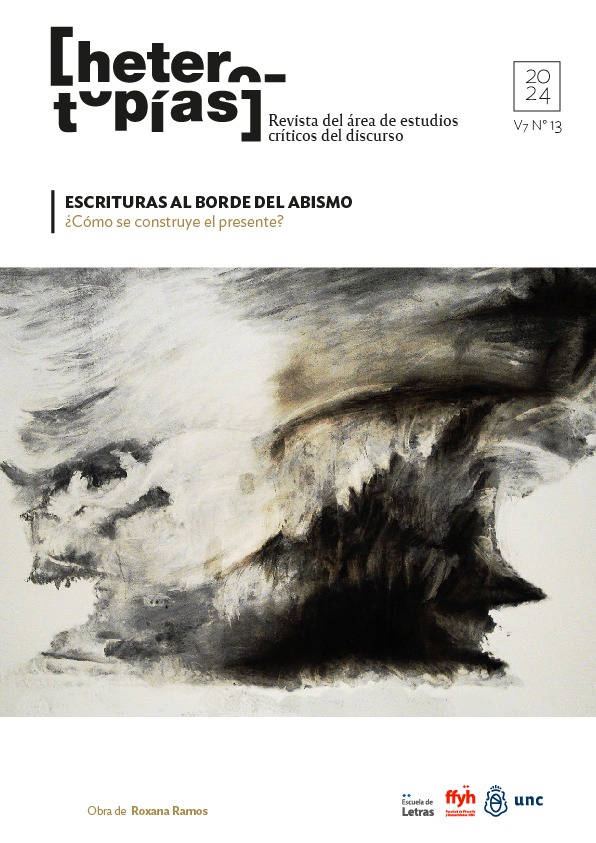Modes of resilience. Literature and Technology
Main Article Content
Abstract
At this stage of the 21st century, no one can doubt the revolution that the development of information and communication technologies has caused in all areas of life. The digitalization implemented in recent decades is the most important instrument for the expansion and democratization of knowledge. However, the dark side began to emerge some time ago. We speak of the “information regime” in which we live as a form of domination in which algorithms and artificial intelligence play a decisive role in political, social, economic, cultural and identity processes. Byung Chul Han in Infocracy describes them: “digital information technology makes communication a means of surveillance” even though people feel free. The arguments show the different ways of permeating society, fragmenting it while undermining the democratic system. In this context, it is worth updating Walter Benjamin's proposal when he assigns to the historian the task of appropriating a memory as it flashes in an instant of danger. As art has the capacity to make the abstract concrete by putting singular faces and lives, I try to analyze the ways in which literature gives ethical, political and aesthetic answers to almost cyclical crises. On this occasion I choose texts by Michel Nieva, who cultivates the genre of science fiction with a markedly political character. His novels build a plot where the science fiction genre, the literary tradition -Argentine and elsewhere- and certain historical characters intersect. Video games, global warming, epidemics and viruses, national history, certain books operate as productive matrices.
Downloads
Article Details

This work is licensed under a Creative Commons Attribution-NonCommercial-ShareAlike 4.0 International License.
Those authors who have publications with this journal, accept the following terms: Those authors who have publications with this journal, accept the following terms:
a. The authors will keep their copyright and guarantee to the journal the right of first publication of their work, which will be simultaneously subject to the Creative Commons Attribution - Non-Commercial - Share Alike (by-nc-sa) Attribution License; no commercial use of the original work or any derivative works is allowed, the distribution of which must be done with a license equal to the one that regulates the original work.
b. Authors may adopt other non-exclusive license agreements for the distribution of the published version of the work (e.g., deposit it in an institutional telematic archive or publish it in a monographic volume) provided that the initial publication in this journal is indicated.
c. Authors are allowed and recommended to disseminate their work through the Internet (e.g. in institutional telematic archives or on their website) before and during the submission process, which may lead to interesting exchanges and increase the number of citations of the published work. (See The effect of open access).
How to Cite
References
Han, Byung-Chul. (2022) Infocracia. La digitalización y la crisis de la democracia. Barcelona: Taurus.
Nieva, M. (2020) Tecnología y barbarie. Ocho ensayos sobre monos, virus, bacterias, escritura no humana y ciencia ficción. Buenos Aires: Santiago Arcos.
Nieva, M. (2013) ¿Sueñan los gauchoides con ñandúes eléctricos? Buenos Aires: Santiago Arcos.
Nieva, M. (2023) La infancia del mundo. Barcelona: Anagrama, Narrativas hispánicas.
Rancière, J. (2014) El reparto de lo sensible. Estética y política. Buenos Aires: Prometeo Libros.
